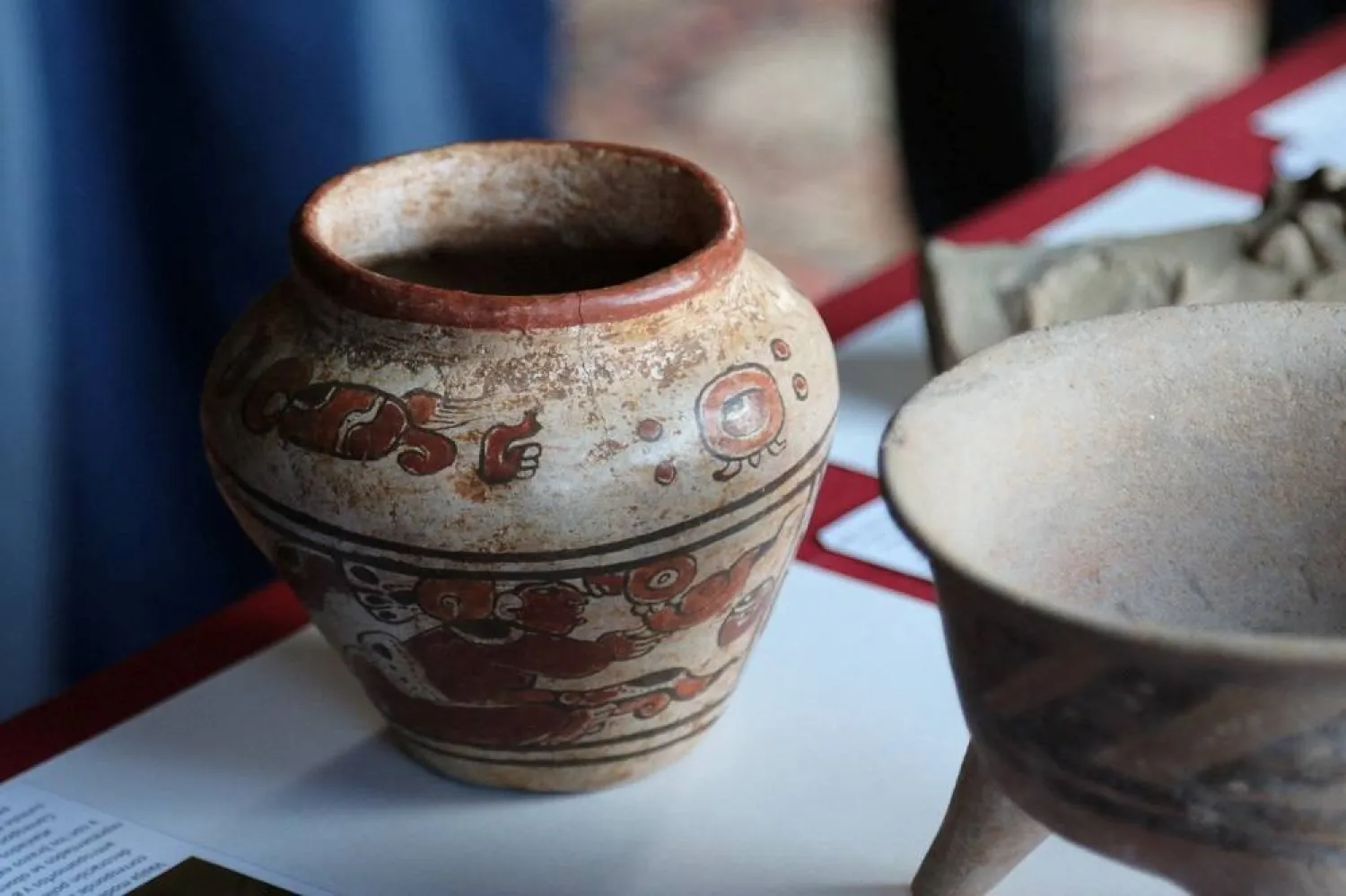The Mexican government will welcome back 20 cultural artifacts that date to the country's storied ancient past, all found in the United States including a Mayan vase over 1,000 years old and purchased for about $4 at a Washington area thrift shop.
Mexico's antiquities institute INAH announced the repatriation, which also include centuries-old plates, bowls as well as sculpted figures belonging to the Aztec, Totonac and Teotihuacan cultures, in a statement on Thursday.
The artifacts are set to be returned to Mexico over the next few days.
The reddish-white Mayan vase has stoked particular interest.
According to a Washington D.C. television news report on Monday, local resident Anna Lee Dozier bought the Mayan vase for $3.99 from a clearance rack at a nearby thrift store about five years ago.
Likely made during the Maya civilization's classical zenith between 200-800 A.D., according to INAH, the well-preserved vase is a colorful polychrome vessel painted with ornate glyphs and depicting seated figures in profile gesturing with their hands.
Major Mayan cities grew in prominence beginning some 3,000 years ago across a large swathe of present-day southern Mexico and several Central American nations, during a time of major human achievements in math, astronomy and art.
Earlier this year, following a trip to Mexico City, Dozier notified Mexico's US embassy that she might have a real artifact, instead of the rustic replica she initially thought she had purchased.
Dozier later turned over the vase to Mexican officials in Washington, telling the local television station she believed the historical piece should return to its country of origin.
She also expressed relief that the ancient artifact was no longer at risk at her home from her two young boys.
"I was petrified that after two thousand years I would be the one to wreck it!"









